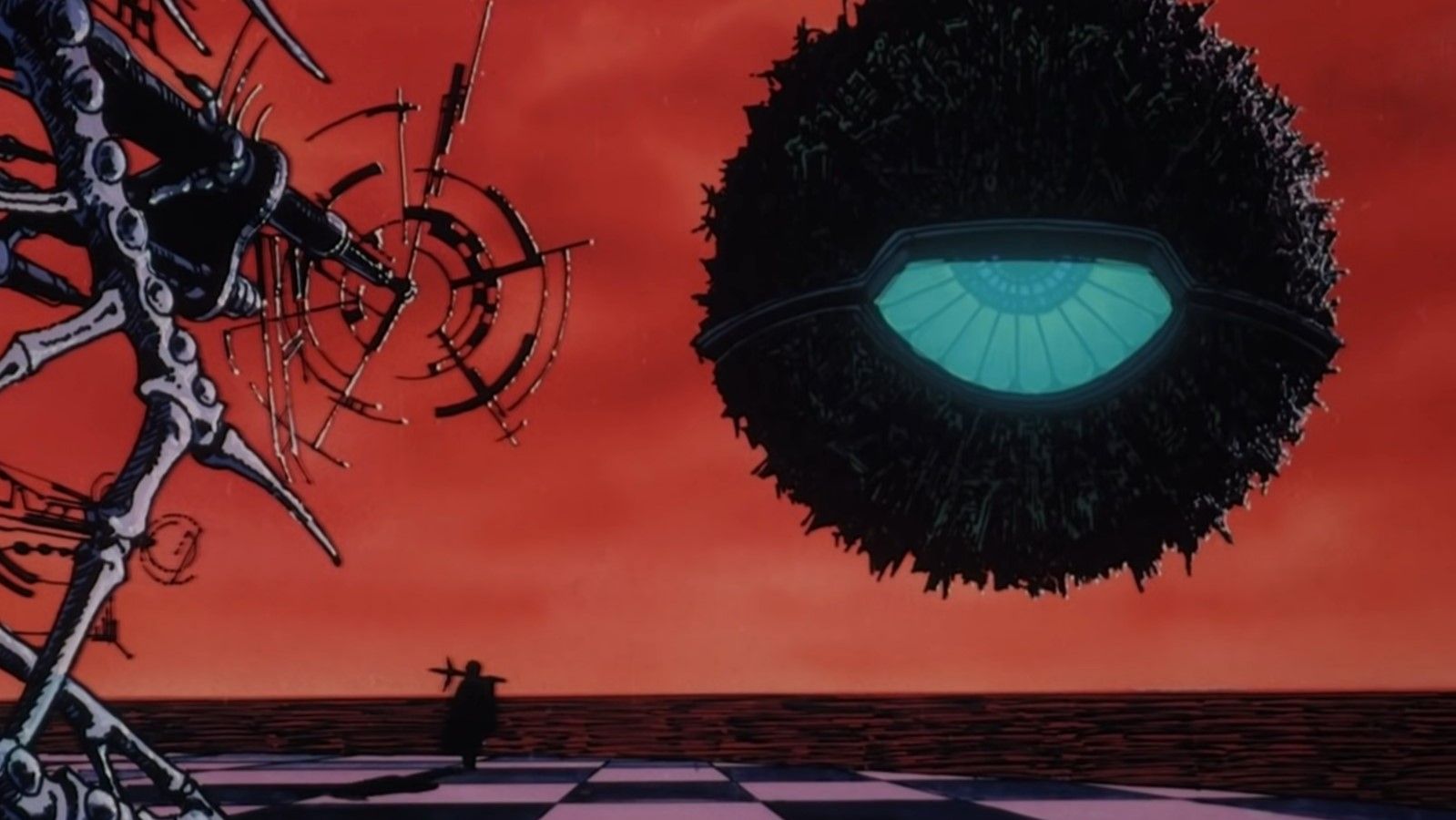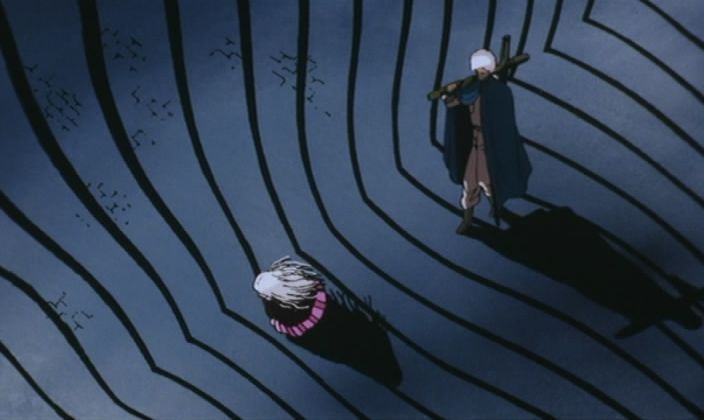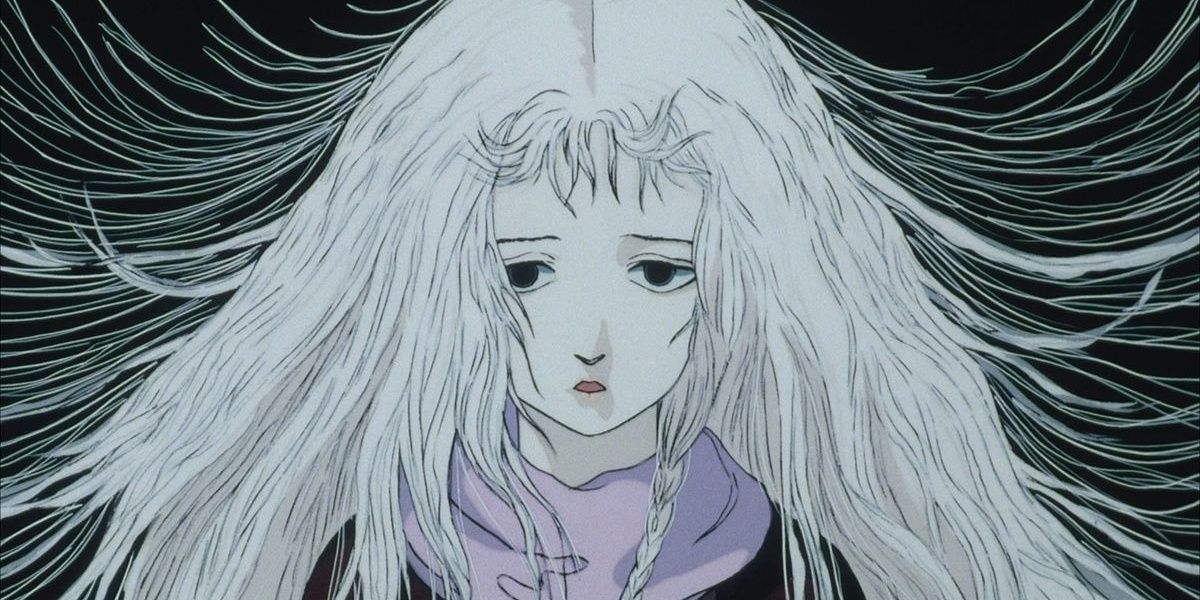
Unraveling the Enigmatic Symbolism of this 80's Anime Classic

Unravel the mystery behind Angel's Egg, an avant-garde anime film from Mamoru Oshii's mind Discover the true meaning behind the surreal imagery and the enigmatic protagonists
Mamoru Oshii, the writer and director of Ghost in the Shell (1995), also created a surrealistic masterpiece in 1985 called Angel's Egg. The film follows a young girl and a forgotten Crusader as they journey through a post-apocalyptic world of rain and stone, with heavy themes of religion, life and death. While the film's plot and theme may be overshadowed by its stream-of-consciousness storytelling and surreal settings, these same elements reveal the underlying message of Angel's Egg. To fully comprehend the film's meaning, it is important to understand its backstory. The Crusader reveals in the latter part of the film that the setting is a world where the Christian God had seemingly forgotten Noah and the people on the ark after the flood, leaving everyone to forget and turn to stone. This backstory reveals that the imagery presented in the film relates to Christian iconography. The world that the young girl and the Crusader traverse is the decaying remains of Noah's ark, which is shown three times throughout the film. The plot of the film revolves around the young girl exploring the ruins of the ark, with the Crusader following her home and ultimately destroying the egg. Through the characters and their actions, Mamoru Oshii conveys a deeper message in Angel's Egg.
Two Protagonists at a Glance
The first character introduced in the film is an unnamed man referred to as the Crusader. His appearance, wielding a cross-like weapon and bandaged hands, suggests a connection to Jesus from the Bible. However, his questioning of God and the broken world he inhabits implies a forgotten Jesus. The Crusader seeks God, as evidenced by his being the only one to see the stone sphere, representing God, in both a dream and the film's conclusion. In contrast, the young girl is innocent and devoutly faithful to God, caring for a dove's egg she hopes to hatch. Her appearance, with white hair, pale skin, and a pink striped dress, stands out against the blue-toned surroundings. She is associated with the Virgin Mary, as she cares for the egg that will save those trapped in the ark, keeping it warm under her dress, appearing pregnant. The young girl also has an affinity for water, collecting and drinking it, unlike the Crusader who avoids it.
The water that imprisons the stone people and the Crusader serves as a means of confinement within the ark, but for the young girl, it signifies life and rejuvenation. She eagerly drinks the water, likening it to taking communion. When she tragically falls to her death, she meets the water with a tender kiss and is born anew, leaving behind numerous eggs. This suggests that her unwavering faith allowed her to ascend to heaven and provide others with more opportunities for salvation. The conclusion of the film confirms her ascension as the Crusader observes the young girl turned to stone among the other angels perched on God. The in-depth exploration of these two characters is the primary focus of the story, a type of character analysis. The plot follows a lost Crusader searching for faith, despite his awareness that there is nothing, and an innocent girl who blindly believes in God, or, in her case, an egg.
What Does it Mean?
Some argue that Mamoru Oshii was promoting blind faith in God through the character and plot analysis. However, the role of the Crusader suggests that instead of advocating for blind faith, Oshii was depicting his personal struggle in finding his own faith. The Crusader emphasized breaking the egg as the only way to truly know what was inside, disregarding any comments made by the young girl about life within the egg. Eventually, he breaks the egg's shell while she is asleep, revealing that it was empty. This moment could signify Oshii's realization that there might not be a God. So, why include the ending of God rising from the waters?
Despite everything that has occurred, the Crusader, Oshii, desires to maintain his faith. He has witnessed the unwavering devotion of the young girl towards the egg, which represents God, and wishes to possess the same conviction. However, he chooses to forego this opportunity, leaving him alone in a sea of confusion and grief.








